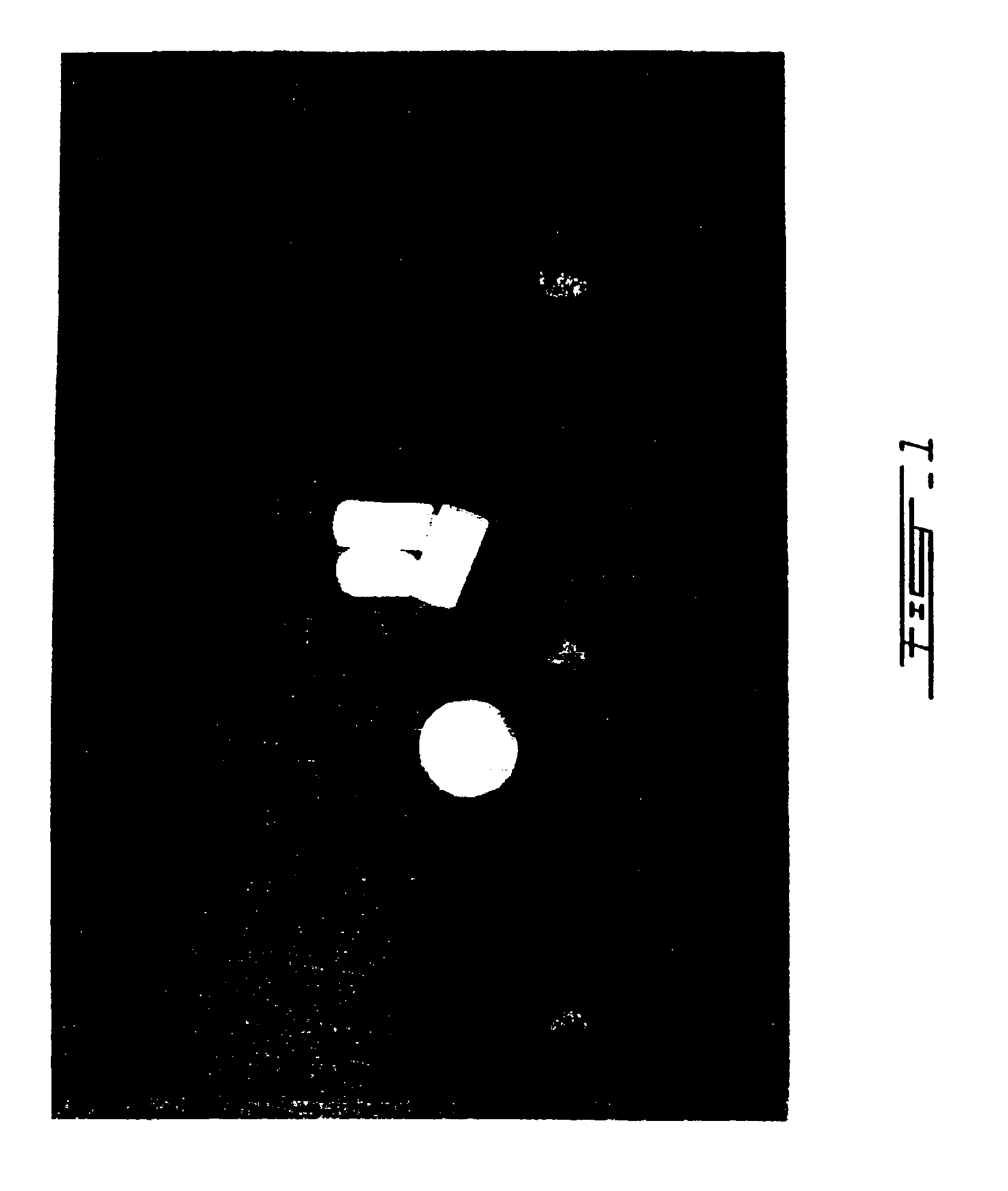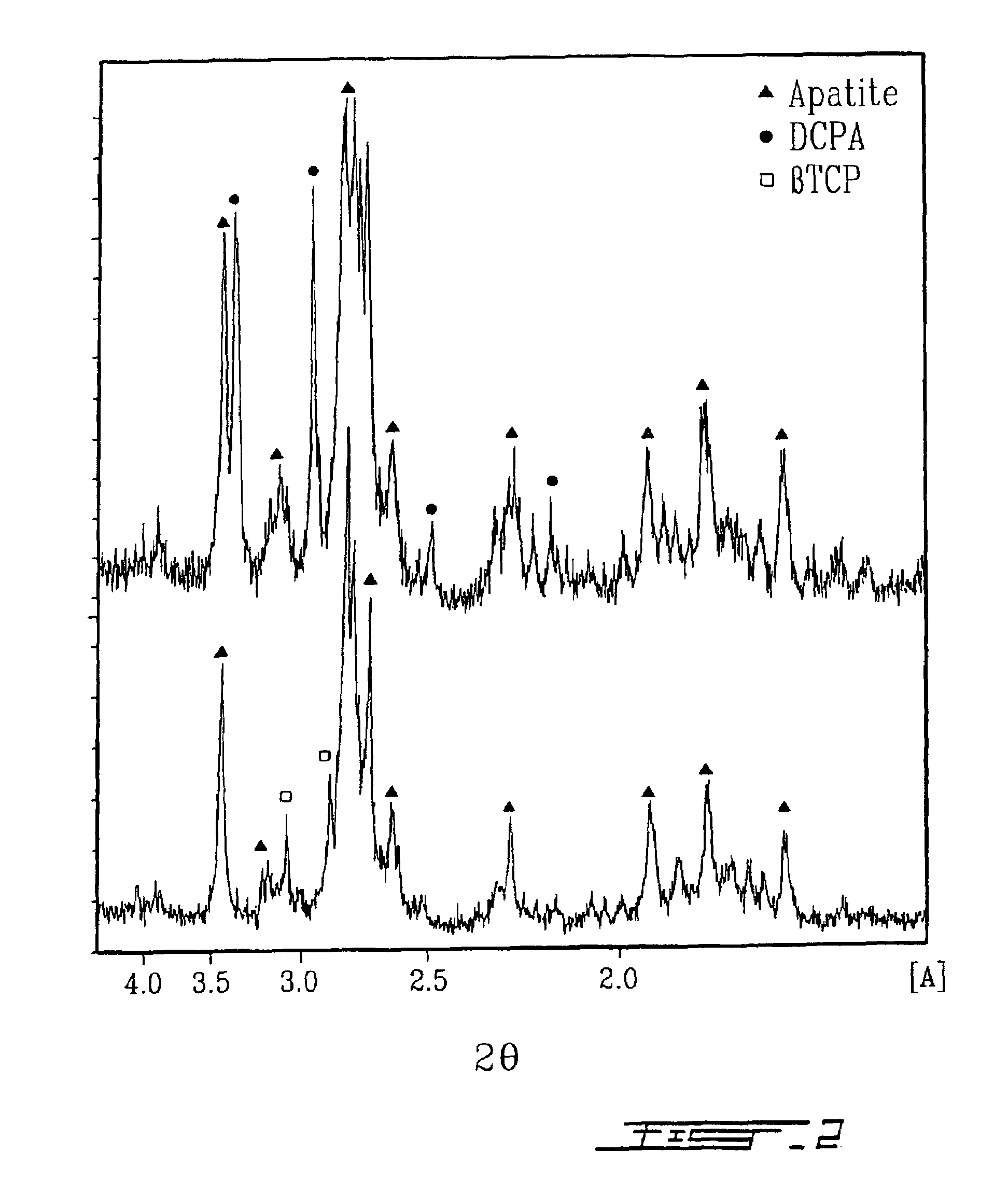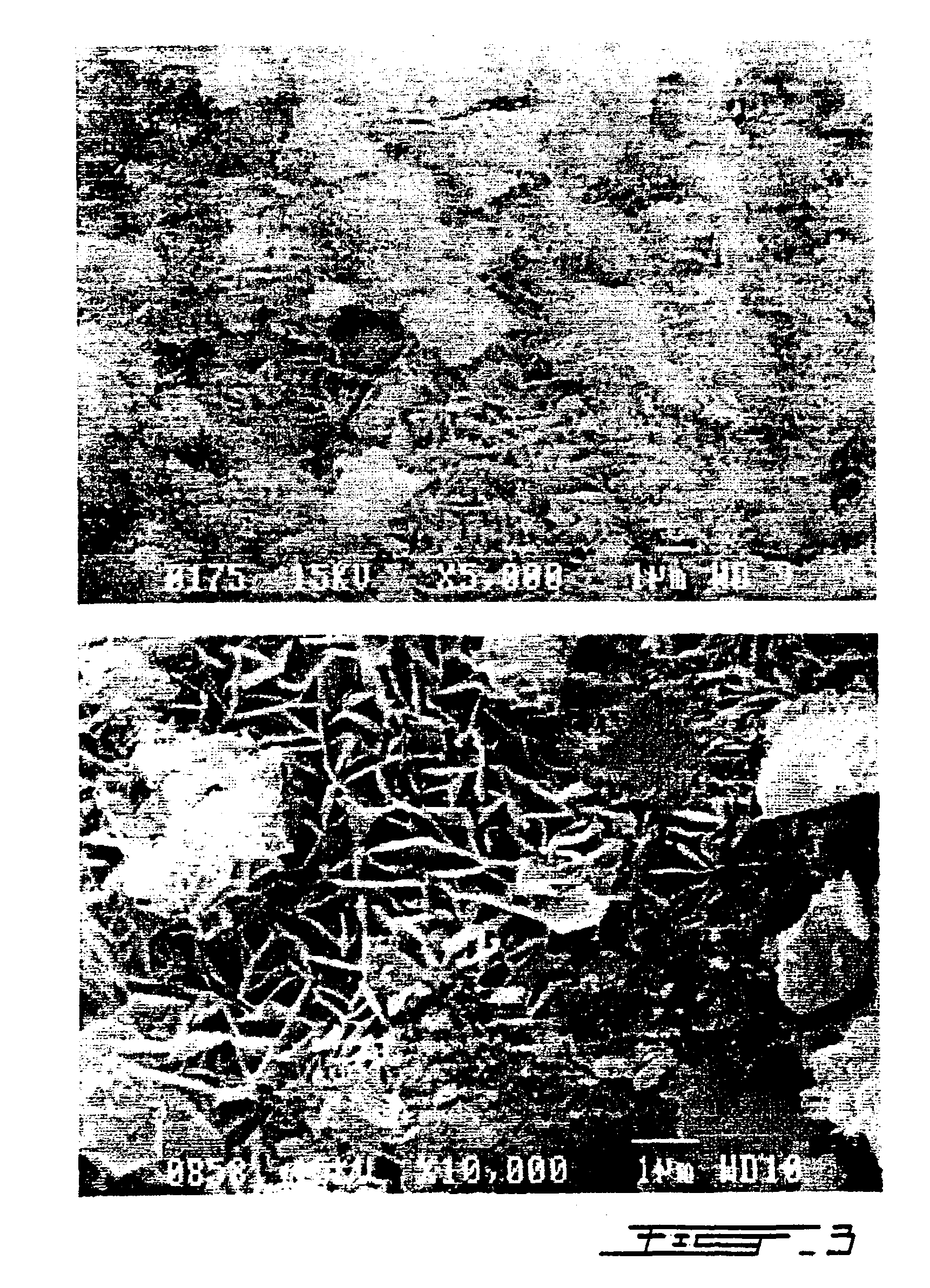In situ self-setting mineral-polymer hybrid materials, composition and use thereof
a technology of mineral-polymer hybrid materials and in situ self-setting, which is applied in the direction of pharmaceutical non-active ingredients, applications, coatings, etc., can solve the problems of not providing any osteogenesis property, affecting the osteoconduction efficiency, and requiring heavy and longer handling and clinical applications
- Summary
- Abstract
- Description
- Claims
- Application Information
AI Technical Summary
Benefits of technology
Problems solved by technology
Method used
Image
Examples
example i
Preparation of Liquid Phases
[0153]The liquid phase of bone composition is an endothermally self-forming aqueous solution made of one hydrophilic biopolymer and at least one water-soluble phosphate source.
[0154]A representative liquid phase is a chitosan / glycero-phosphate [chitosan-GP] aqueous solution. An acidic chitosan aqueous solution (2.0% w / v) was made with a chitosan previously deacetylated at 83-97%, filtered and dialyzed, and was prepared from a 0.097M (0.10M) HCl solution. A chitosan / glycerophosphate aqueous solution was prepared from the 2.0% (w / v) chitosan in HCl aqueous solution and a 8.4% (w / v) disodium glycerophosphate in distilled water solution. Final concentrations (w / v) in the self-gelling chitosan / glycerophosphate systems was approximately 1.6-2.0% (chitosan) and 6.75-8.2% (glycerol-phosphate).
[0155]Glycerophosphate salts act herein as buffering / thermo-gelling agents for the chitosan solution. Other buffering / thermogelling phosphate sources may be used, typically ...
example ii
Cement-Like Compositions and Bio-Materials
[0180]Compositions for cement-like bio-materials were prepared from liquid and solid (mineral) phases, liquid phases being prepared typically as described in Examples 1 and being thermally sensitive. The solid phase is a powder phase, generally containing minerals such as calcium phosphates or carbonates, and optionally solid organics. Liquid and solid phases are intimately mixed together before reaching a cement-like self-setting composition that has a hardening characteristic.
[0181]Tetracalcium phosphate (TTCP) was from Clarkson Chromatography Products Corp. (NY, USA). Dicalcium phosphate and Tricalcium phosphate (alpha or beta) were from Fluka Chemical Company (Germany) and Clarkson Chromatography Products Corp. (NY, USA). Monocalcium phosphates were from American & Chemical (USA) and Aldrich Chemical Company.
a) TCP Cement-Like Compositions and Resulting Bio-Materials
TCP / MCP Calcium Phosphate Content
[0182]Liquid phases were composed of pu...
PUM
| Property | Measurement | Unit |
|---|---|---|
| size | aaaaa | aaaaa |
| size | aaaaa | aaaaa |
| size distribution | aaaaa | aaaaa |
Abstract
Description
Claims
Application Information
 Login to View More
Login to View More - R&D
- Intellectual Property
- Life Sciences
- Materials
- Tech Scout
- Unparalleled Data Quality
- Higher Quality Content
- 60% Fewer Hallucinations
Browse by: Latest US Patents, China's latest patents, Technical Efficacy Thesaurus, Application Domain, Technology Topic, Popular Technical Reports.
© 2025 PatSnap. All rights reserved.Legal|Privacy policy|Modern Slavery Act Transparency Statement|Sitemap|About US| Contact US: help@patsnap.com



